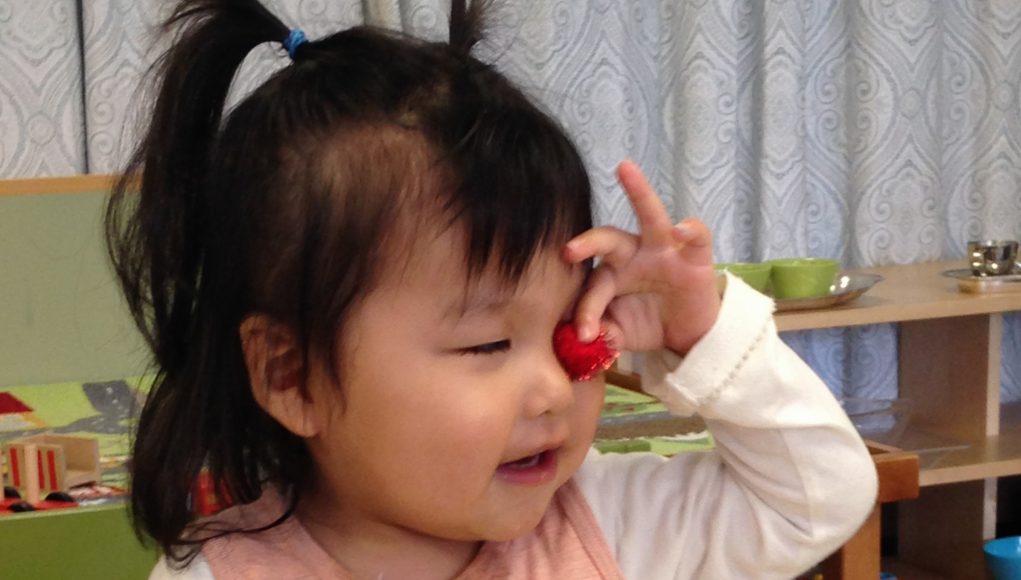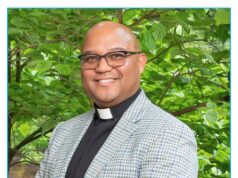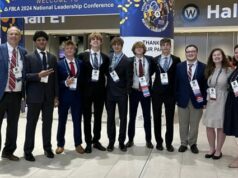Harmony Day School founder Michelle Campbell moved to Lexington’s 40509 neighborhood from Winchester in 2000. Creating a Montessori program, she says, “had been a long time dream of mine,” and she set about acquiring the necessary tools and experience to realize that dream. “It’s always been important to me to have a quaint neighborhood school. At the same time, I recognized it was important that I have vast experience teaching and observing in a variety of Montessori school settings before launching into designing my own school. Every program has its own unique qualities and I knew I wanted my school to be truly special. After four years of teaching in traditional programs and 12 more years of teaching in four different Montessori programs, I felt ready to create Harmony Day School.” 
Our neighborhood, here in southeast Lexington, she says, was an “obvious choice. My family, friends, and neighbors are here and I wanted to offer them a high quality Montessori program for their children. In 2010, there were not a lot of options here in the Hamburg, Andover and Richmond Road areas for young children or young families wanting an early childhood education for their children. I wanted to give them something special. …With the explosion of development and growth here – especially among young families, it seemed ideal for its own Montessori Program.”
Harmony Day is located inside Victory Lutheran Church on Rio Dosa Drive, conveniently and quickly accessible for Hamburg, Andover, and all southeast Lexington parents. Campbell says, “The church has a beautiful large lower level with lots of natural sunlight. Our classrooms are open to one another which allows our staff to provide each other support throughout the school day. Extra adult hands can be available when one classroom needs them. It is surprising how quiet the classrooms can be when all of our students are hard at work on their activities, even with the ‘open concept’ classroom, which is not unusual – other Montessori programs operate in a similar way – but it is a bit unique. However, this layout allows our oldest children to have interactions every day with our toddlers and that has proven to be very beneficial to all our students.”
 She followed Dr. Maria Montessori’s lead in determining what age groups Harmony Day would serve. “She began with children ages 3 to 6 and that is where we started. We have since added a Toddler Program for children ages 18 months through 3 years. We will add an elementary program when we have families asking for and ready to support an elementary program.”
She followed Dr. Maria Montessori’s lead in determining what age groups Harmony Day would serve. “She began with children ages 3 to 6 and that is where we started. We have since added a Toddler Program for children ages 18 months through 3 years. We will add an elementary program when we have families asking for and ready to support an elementary program.”
She explains, “Montessori classrooms are multi-age classrooms with student ages spanning over three years. This allows for a classroom community to grow —older students giving lessons or reading to our younger students. Everyone in a Montessori classroom experiences needing help, practicing asking for help – not just from the adults but also from other children, and everyone in a Montessori classroom experiences giving help. It works beautifully and creates very peaceful and supportive environment for learning to take place.
What would parents find if they dropped in on a “typical” day? They would discover that there is no such thing as a typical day in a Montessori classroom. Campbell says, “There is always something interesting happening. Students are learning foreign language, planting seeds or seedlings, studying whatever insect they might have discovered in our outdoor classroom. It’s very child-centered, so while we always have new daily lessons planned, we also have many many
impromptu lessons based on whatever interesting thing the child discovers on their own. One year I had a student who had developed an interest in learning about the Tita nic. Not a typical topic of conversation in a primary 3-6 year old classroom, but he was fascinated so we rolled with it. He was a very advanced learner so he studied geography – made beautiful maps of the ship’s voyage, even studied ocean currents and the period fashion as part of his Titanic study. In a Montessori classroom, it’s impossible to know what any one day might bring. Montessori guides are very flexible because we recognize it is about the child and the child’s learning process. We are there to introduce lessons and guide the students towards life success.”
nic. Not a typical topic of conversation in a primary 3-6 year old classroom, but he was fascinated so we rolled with it. He was a very advanced learner so he studied geography – made beautiful maps of the ship’s voyage, even studied ocean currents and the period fashion as part of his Titanic study. In a Montessori classroom, it’s impossible to know what any one day might bring. Montessori guides are very flexible because we recognize it is about the child and the child’s learning process. We are there to introduce lessons and guide the students towards life success.”
Parents often ask themselves how they’ll know when their child is ready for preschool. Campbell recommends parents “observe their child for cues to readiness. Has the child given up their morning nap? This should be dictated by the child and should not be pushed or rushed. Once the child gives up their morning nap, the parent should also be observing an active and interested child. If the child is curious and wanting more stimulation than the home environment provides, it’s time to enroll. A lot of preschool require a child be toilet trained. At Harmony Day School, toilet training is part of toddler curriculum.”
Once enrolled, parents will find that the day is “student-centered. We have four different student areas at the school. The classrooms, of course, but also an afterschool room for our children who stay beyond the half day noon pick up and the 2:30 full day pick up times. This room offers more play based materials to provide our students a bit of a ‘down time’ from the classrooms. We also have an indoor gross motor room. This space provides the young child a place to appropriate throw, jump, slide, spin and crawl. Very important tasks to the child learning about their body and refining their gross motor movements.”
 Parents are an integral part of the Montessori educational experience. Campbell says, “We look to parents as partners in their child’s education. We offer parent education nights, parent observations, parent teacher conferences and family fun events. This year our goal is to add a school vlog (video blog) to our school website. Our hope is when a parent learns of a new lesson their child has received, they can watch the vlog to see that lesson. We want to offer opportunities for our parents to really understand the child’s school day experience and to further understand the amazing gift they have given their child by enrolling them in a Montessori program.”
Parents are an integral part of the Montessori educational experience. Campbell says, “We look to parents as partners in their child’s education. We offer parent education nights, parent observations, parent teacher conferences and family fun events. This year our goal is to add a school vlog (video blog) to our school website. Our hope is when a parent learns of a new lesson their child has received, they can watch the vlog to see that lesson. We want to offer opportunities for our parents to really understand the child’s school day experience and to further understand the amazing gift they have given their child by enrolling them in a Montessori program.”
Asked to finish the sentence, “when my child ‘graduates’ from Harmony Day, he or she will be able to……” Campbell responds, “At the age of 6, I would say a child will leave Harmony Day School having developed a great deal of independence, self-pride, amazing coordination – gross motor and fine motor and a very strong sense of order. Because they have developed those skills, they will have begun to read, some will have learned to add, subtract, divide and multiply into the thousands. They will have an understanding of other lands and the people who live there. They will have an ear for languages, and I could go on and on. But what a Montessori education really creates are life-ready children. Children who know how to study, are self-motivated learners and are excellent time managers. They initiate activities independently, rather than waiting to be told what to do, and they know how to work in groups and divide tasks for group collaborations. Montessori students are prepared for life success, they make excellent employees and they are among today’s most innovative adults. And who doesn’t want that for their child?”
Harmony Day School will host an open house on Sunday August 9th at 4:30 pm at Victory Lutheran Church at 2885 Rio Dosa Drive.












